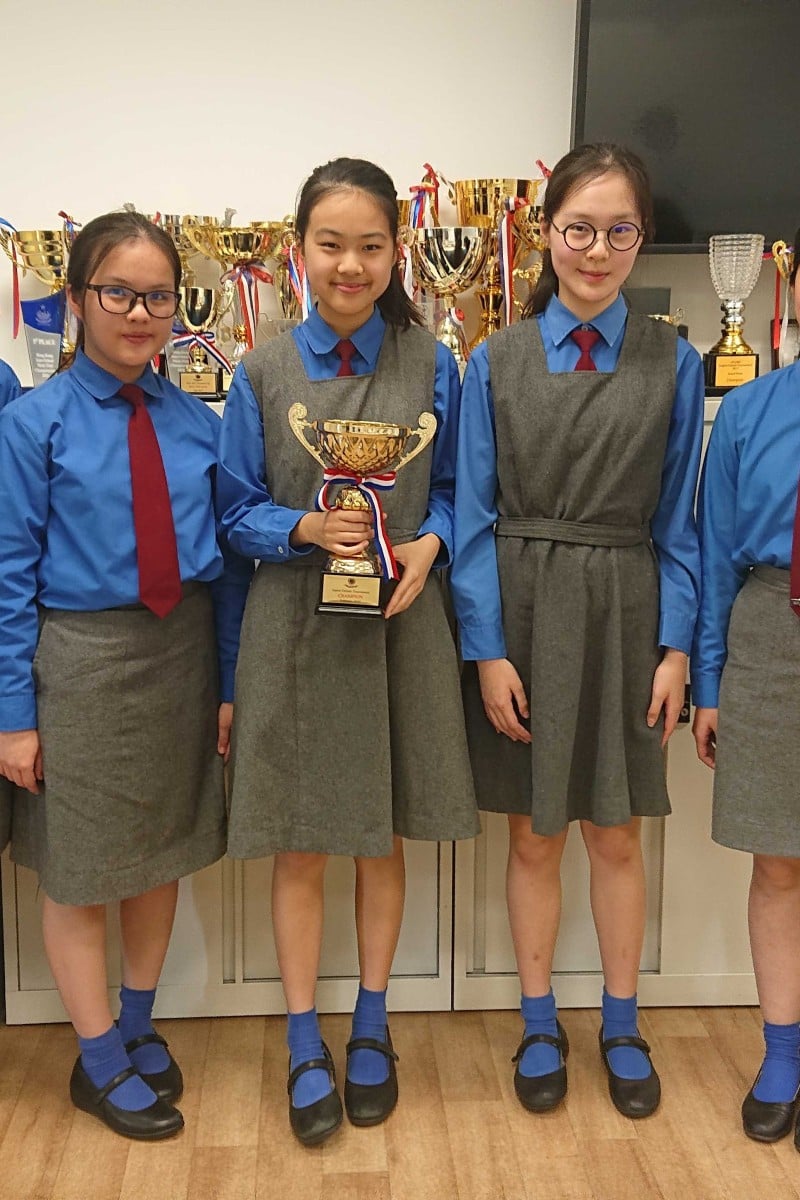
Leading Lights: Junior Schools Debating Competition champions Diocesan Girls’ School tell us the key to a perfect rebuttal
We speak with the top debaters about how they talked their way out of some difficult challenges
 DGS debaters (from left) Dorothy Tan, Jade Wong, Jamie See, Madeleine Wu, Tania Chan.
DGS debaters (from left) Dorothy Tan, Jade Wong, Jamie See, Madeleine Wu, Tania Chan. There was only so much preparation the debaters at the 18th Junior Schools Debating Competition could do, considering they were only told what topic they’d be arguing less than an hour before the debates started.
This posed quite a challenge for the competitors, but a group of student debaters from Diocesan Girls’ School embraced it and came out on top.
The competition’s champions – Jamie See, 13, Nathania Ngo and Claire Wai, both 12, and 14-year- olds Gianna Lai and Madeline Wu – made up one of the 39 teams from 26 local and international schools competing in the two-day competition. It took place on March 2 and 3, and was organised by the Hong Kong Schools’ Debating and Public Speaking Community for Form One to Three students.
Last month, Young Post spoke to Jamie and Madeleine, as well as Tania Chan and Jade Wong, two 16-year-old senior students who adjudicated the competition. They talked about the experience, and the keys to making strong and cogent arguments, as well as delivering persuasive and powerful speeches.
“One of the most memorable moments for us was the impromptu debate in the preliminary rounds, where the motions were released only 45 minutes before the debate started,” Madeleine said.
“We were all panicking and felt very nervous because we didn’t know a lot about the motion [producing film adaptations and sequels].”
The unexpected challenge made the competition all the more stressful, but Madeleine said it was a valuable experience that taught the team to think on their feet and build a strong argument within a short time frame.
“We started preparing two weeks before the preliminary rounds,” said Jamie.
“We also hosted some friendly competitions with other schools so that we could have some practice mock debates.”
When asked for advice on how to dominate a debate, Jamie said it’s crucial to strengthen your arguments by putting them into context and then back them up with various examples.
“This will make it easier for the judges to see things from your perspective, and make your arguments more persuasive,” she said.
While logic and clarity are the primary elements for a credible speech, speech style and emotional expressions are necessary to take an oration to the next level, said student adjudicator Tania, who was also DGS’s debate team captain.
She added it is very important for debaters to tap into the audience’s emotions, especially when they are arguing about human-related issues, which comes up quite often.
Meanwhile Jade highlighted a common mistake made by junior debaters when rebutting the opposition’s argument.
“The purpose of a rebuttal is to show that your opponent’s argument is wrong. But a lot of debating beginners use it to prove themselves right, thinking it would make their opponents wrong,” she said.
Debate is also very much a team activity, added Madeleine, and said it’s important that team members keep encouraging each other the entire way.
“Not doing well in one round is not a deciding factor of how well you will do in the next round,” she said. “It’s important for the team to support each other during the bad times.”
Lastly, Jade advises debaters to never underestimate their opponents, even if their team is in the lead.
“You can only perform at your best when you go into a round prepared, and with a neutral mind,” she said.
